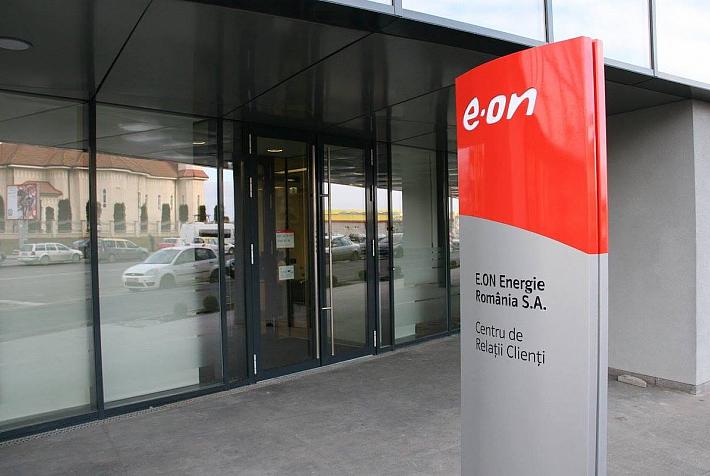(P) Tax Flash: Fiscal Code Norms

Government Decision No. 1071/6 November 2012 (“GD”) amending and supplementing the Implementation Norms of Law No. 571/2003 on the Fiscal Code, approved by Government Decision No. 44/2004
(published in the Official Gazette No. 753/8 November 2012)
Certain amendments and clarifications have been introduced concerning profits tax, VAT and excise duties.
The provisions of the GD become effective on publication in the Official Gazette, except for the provisions related to VAT and certain provisions related to excise duties, which become effective staring 1 January 2013.
The main amendments brought to the Implementation Norms of Law No. 571/2003 on the Fiscal Code include, inter-alia, the following:
Profits tax
Profits tax computation
Amendments are brought to the provisions under which in case where contractual interest/penalties are cancelled, the taxpayers are required to adjust their taxable profits for the tax period in which the revenues and expenses were initially recorded.
The Norms now provide that the respective contractual interest/penalties which are cancelled should be treated as taxable revenues, respectively as deductible expenses in the tax year in which their cancellation is recorded, provided that initially they were treated as deductible expenses, respectively as taxable revenues.
Provisions and reserves
New provisions have been introduced for the deduction for profits tax purposes of specific technical provisions set up by legal entities, optional pension fund administrators and, respectively by private pension funds administrators.
Tax losses
Rules were introduced on the recovery of tax losses recorded by the transferor in the years preceding a reorganisation
(e.g. merger, spin-off), which are carried forward by the transferor and transferred to the beneficiary.
Such tax losses shall be recovered by the beneficiary on each payment deadline of the profits tax following the date when the reorganisation operations take effect under the law.
As for the tax loss recorded by the transferor between 1 January and the date when the reorganisation is effective in that year, it would be recovered by the beneficiary before the recovery of tax losses from previous years.
In addition, certain obligations were also introduced for the recording of tax losses in the fiscal register both by the transferor and by the beneficiary, as well as disclosing obligations between the transferor and the beneficiary.
VAT
Goods given free of charge under protocol actions
New rules have been introduced for deducting VAT on low value goods given free of charge of under protocol actions. Under these rules, granting goods with a RON 100 value, does not qualify as a supply of goods. Thus, for individual gifts exceeding the RON 100 threshold, self-collected VAT should be assessed if the deduction right was exercised upon the acquisition of these respective goods.
Electronic invoicing
Rules were introduced for the equal treatment of paper and electronic invoices.
Definitions were introduced on the authenticity of origin, integrity of content and legibility of an invoice to be ensured between the time of issue and the end of the storage period.
VAT cash accounting system
A series of clarifications were brought, such as:
Persons excluded from the application of the VAT cash accounting system
Certain issues relating to the categories of persons required to apply the VAT cash accounting system were clarified. Thus, for example, taxable persons established in Romania which are part of a VAT group, taxable persons not established in Romania which are registered in Romania for VAT purposes directly or through a tax representative and taxable persons which have the seat of their economic activity outside Romania but have a fixed establishment in Romania, do not apply the VAT cash accounting system in respect of VAT collection. However, the respective persons will apply the VAT cash accounting system in respect of VAT deduction for invoices issued by taxable persons for which the VAT cash accounting system is compulsory.
The threshold for the application of the VAT collection system
When determining the turnover serving as a reference point for the computation of the RON 2,250,000 threshold under which the application of the VAT cash accounting system is compulsory, the taxable person will consider the taxable base entered in the dedicated rows of the VAT return for taxable operations and/or exempt with deduction right, operations for which the place of supply is considered to be abroad, as well as in the related regularisation rows.
Registration in the Registry of persons applying the VAT cash accounting system
Clarifications have been brought on the entry in the Registry of persons applying the VAT cash accounting system for the persons whose turnover for the period 1 October 2011 – 30 September 2012 inclusively does not exceed the RON 2,250,000 threshold, but which are no longer registered for VAT purposes as of 31 December 2012, further to the cancellation of their VAT registration, or being part of a VAT group. Thus, the respective persons would not be registered by the relevant authorities in the Registry of persons applying the VAT cash accounting system or removed from such Registry if already registered.
Cashing in the value for the supply of goods/provision of services
A set of rules are mentioned for the date when the value of the supplies of goods or the provisions of services is considered cashed in from the beneficiary or from a third party where the settlement is performed in cash, in kind, by compensation, by assignment of receivables or by using payment instruments.
Similar rules were introduced also for the VAT deduction right on invoices issued under the VAT cash accounting system for which the settlement of the payment is performed in cash, in kind, by compensation, by assignment of receivables or by using payment instruments, irrespective of whether the payment is made by a third party.
Records of transactions
In case of transactions subject to the VAT cash accounting system, both the seller and the buyer have the obligation to include in the VAT journals the invoices issued/received for which the VAT cash accounting system is applicable, even if the VAT chargeability, respectively the VAT deduction right does not arise in the period in which the invoice was issued.
Invoices bearing unsettled VAT, in full or in part, will be carried forward in the VAT journals for sales, respectively purchases until the VAT becomes chargeable under the law.
As already applicable, there is no legal requirement for standardized format of the sales, respectively purchases VAT journals.
Excises and other special duties
Authorisation requirements
New provisions have been introduced on the obligation of the warehouse keeper authorised for the production and bottling of beer to notify to the local customs authorities the decision to use such installations for the bottling of soft drinks and still water. If this decision has an impact on the information included within the initial statement (e.g. capacity, production volume), the warehouse keeper shall amend the initial statement accordingly.
Guarantees
New more favourable rules regarding the reduction of guarantees have been introduced. In this regard, the authorities may approve, upon request, the reduction of the guarantee by 50%, respectively by 75%, if over the past 2, respectively 3 consecutive years of activity, the authorised warehouse keeper or the registered consignee had no outstanding tax liabilities to the general consolidated budget administered by the National Agency of Fiscal Administration, for whom the guarantee was executed and the forced execution procedure applied.
By Venkatesh Srinivasan, Partner – Head of Tax and Legal, Ernst & Young Romania
(P- this article is an advertorial)











